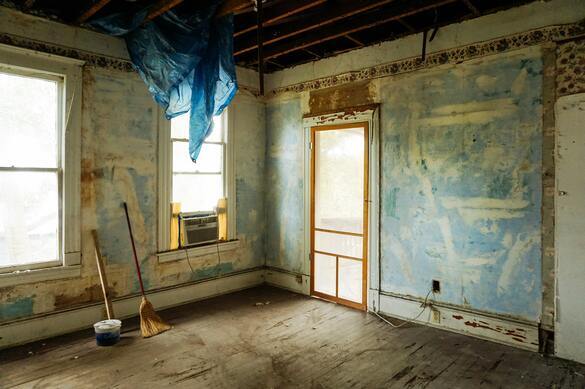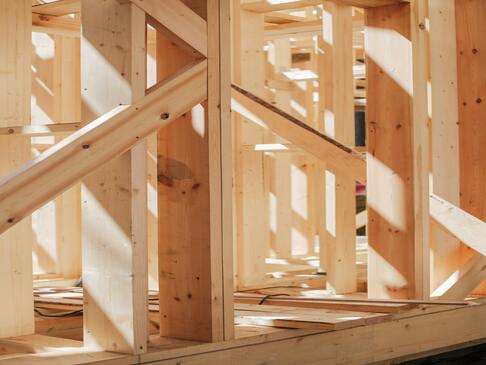Your Essential Guide to Inspecting Structural Integrity for Your New Maryland or Washington DC Home
Buying your first home is a thrilling milestone, but it can also be a daunting experience. One of the most critical yet often overlooked aspects is ensuring the structural integrity of the property. If you’re a first-time homebuyer in Maryland or Washington DC, this guide is tailored just for you. We will walk you through the essentials of inspecting your dream home to ensure it’s both safe and sound.
Understanding how to assess the structural integrity of a home can save you from costly repairs down the line. This guide covers the significance of thorough inspections, potential red flags, the role of historical research, and even how weather can affect your new abode. Equipped with this knowledge, you’ll be able to make an informed decision and protect your investment.
Understanding Structural Integrity
 What Structural Integrity Means
What Structural Integrity Means
Structural integrity refers to a home’s ability to withstand its intended load without experiencing failure or significant deformation. Essentially, it’s about whether the home can hold up against environmental factors, regular use, and time. A structurally sound home provides stability, safety, and peace of mind.
Common Issues Affecting Structural Integrity
In the Maryland and Washington DC areas, homes may face specific challenges that affect their structural integrity. Common issues include foundation cracks, water damage, and termite infestations. Older homes, in particular, may have outdated building materials that no longer meet current safety standards.
Regional Concerns
Homes in these regions may also be susceptible to soil movement, which can compromise the foundation. Proximity to bodies of water can lead to increased moisture levels, further impacting the home’s structure. Recognizing these common issues can help you focus your inspection efforts and avoid unpleasant surprises.
Pre-Purchase Inspections
The Significance of Professional Home Inspections
A professional home inspection is a vital step in the homebuying process. An experienced inspector can identify potential structural issues that may not be visible to the untrained eye. This step can save you from costly repairs and provide leverage during negotiations.
Finding a Reputable Home Inspector
In Maryland and Washington DC, finding a reputable home inspector is crucial. Start by asking for recommendations from friends or family. Online reviews and ratings can also offer insights into an inspector’s reliability and thoroughness. Ensure that your chosen inspector is licensed and has experience inspecting homes in your specific area.
What to Expect During the Inspection
During the inspection, the professional will examine the foundation, roof, walls, plumbing, electrical systems, and more. They will provide a detailed report highlighting any issues found and their potential impact. This report is invaluable for making an informed decision about your purchase.
Red Flags to Look Out For
 Foundation Issues
Foundation Issues
Foundation problems are a major red flag. Look for cracks in the foundation walls or floors, uneven flooring, and doors or windows that stick. These signs can indicate serious structural issues that may require extensive repairs.
Water Damage
Water damage is another substantial concern. Check for water stains on ceilings and walls, musty odors, and mold. Pay close attention to basements and crawl spaces, as they are prone to moisture accumulation. Water damage can weaken the structure and lead to health hazards.
Termite Infestations
Termites can cause significant damage to a home’s structure. Look for mud tubes on exterior walls, hollow-sounding wood, and discarded wings near windowsills. A termite infestation requires immediate attention and can affect the property’s value.
Importance of Historical Research
How Age Affects Structural Integrity
The age of a home can significantly impact its structural integrity. Older homes may have outdated construction practices and materials. Understanding the history of the property can help you anticipate potential issues and plan accordingly.
Researching Property History
In Maryland and Washington DC, you can access property records through local government websites. These records can provide information about previous owners, renovations, and any past structural issues. Historical research can give you a comprehensive view of the home’s condition over time.
Utilizing Local Resources
Local historical societies and libraries can also be valuable resources. They often contain archives and documents that can shed light on a property’s past. Understanding the full history of a home can inform your decision-making process and uncover hidden concerns.
The Role of Weather and Climate
 Regional Weather Patterns
Regional Weather Patterns
The weather in Maryland and Washington DC can vary greatly, affecting homes differently. Seasonal changes, such as heavy snowfall or intense summer heat, can impact a home’s structural integrity. Understanding these patterns is crucial for assessing potential damage.
Impact on Homes
Extreme weather conditions can lead to issues like roof leaks, foundation shifts, and moisture problems. Homes near the coast may be prone to saltwater corrosion, while those in low-lying areas could face flooding risks. Consider these factors when evaluating a property’s structural condition.
Mitigating Weather Effects
Ensure the home has proper drainage systems, a well-maintained roof, and appropriate insulation. Regular maintenance and timely repairs can mitigate the impact of harsh weather conditions. Being proactive helps preserve the home’s structural integrity.
Financing Considerations
Structural Issues and Financing
Structural issues can complicate the financing process. Lenders may require additional inspections or repairs before approving a mortgage. Understanding these requirements is essential for a smooth transaction.
Working with Lenders
Communicate openly with your lender about any structural concerns. Providing a thorough inspection report can demonstrate your commitment to addressing issues. Some lenders may offer renovation loans to cover necessary repairs.
Insurance Implications
Structural integrity also affects homeowners’ insurance. Insurers may charge higher premiums or deny coverage for homes with significant structural issues. Ensure you understand the implications and seek adequate coverage to protect your investment.
Conclusion
Inspecting the structural integrity of your potential home is a critical step in the homebuying process. By understanding key concepts, identifying red flags, and conducting thorough research, you can make an informed decision that protects your investment. Remember, the safety and stability of your home are paramount.
If you’re a first-time homebuyer in Maryland or Washington DC, take the time to conduct thorough inspections and seek professional advice. Your dream home should be a source of joy and security, not costly repairs and stress. For expert assistance and comprehensive inspections, consider reaching out to professionals who can guide you every step of the way.


 Foundation Issues
Foundation Issues Regional Weather Patterns
Regional Weather Patterns

